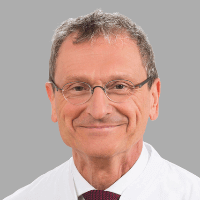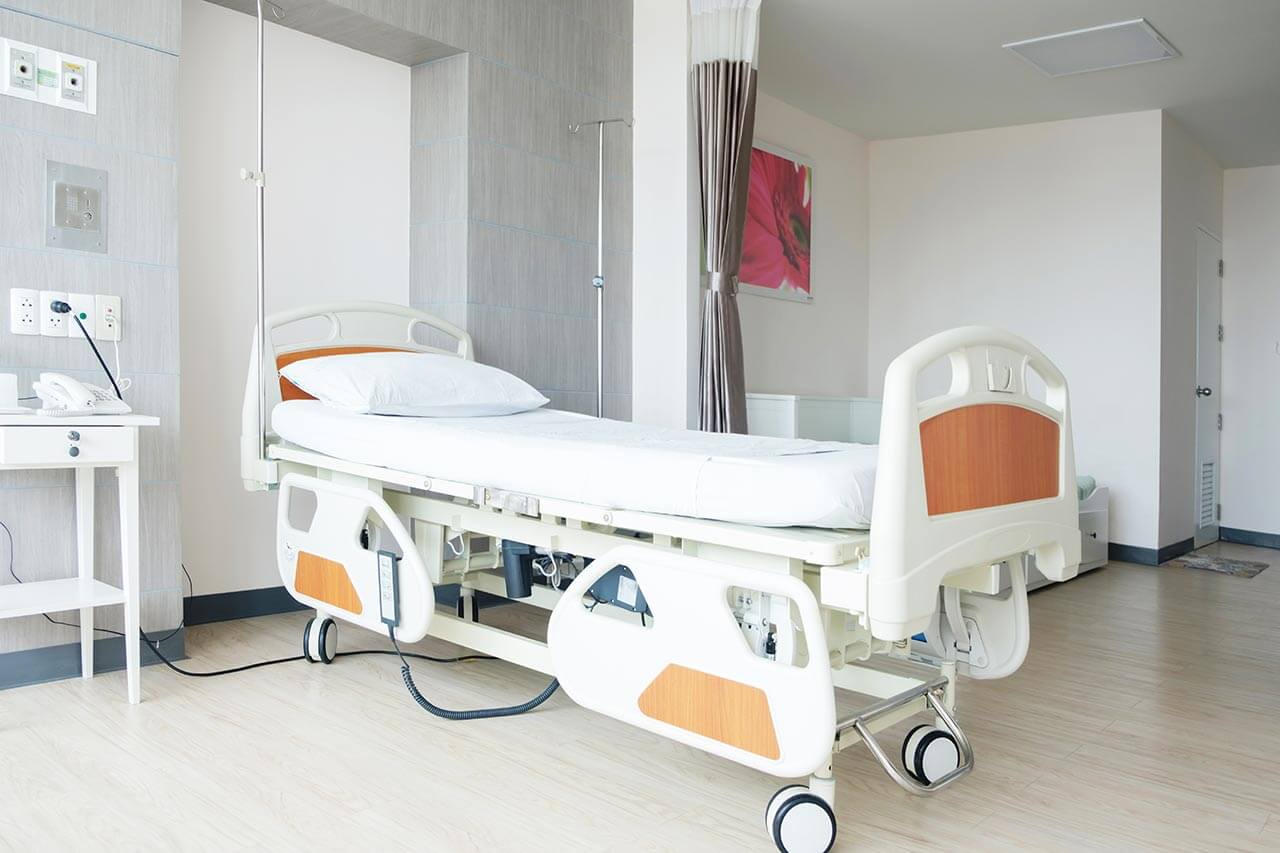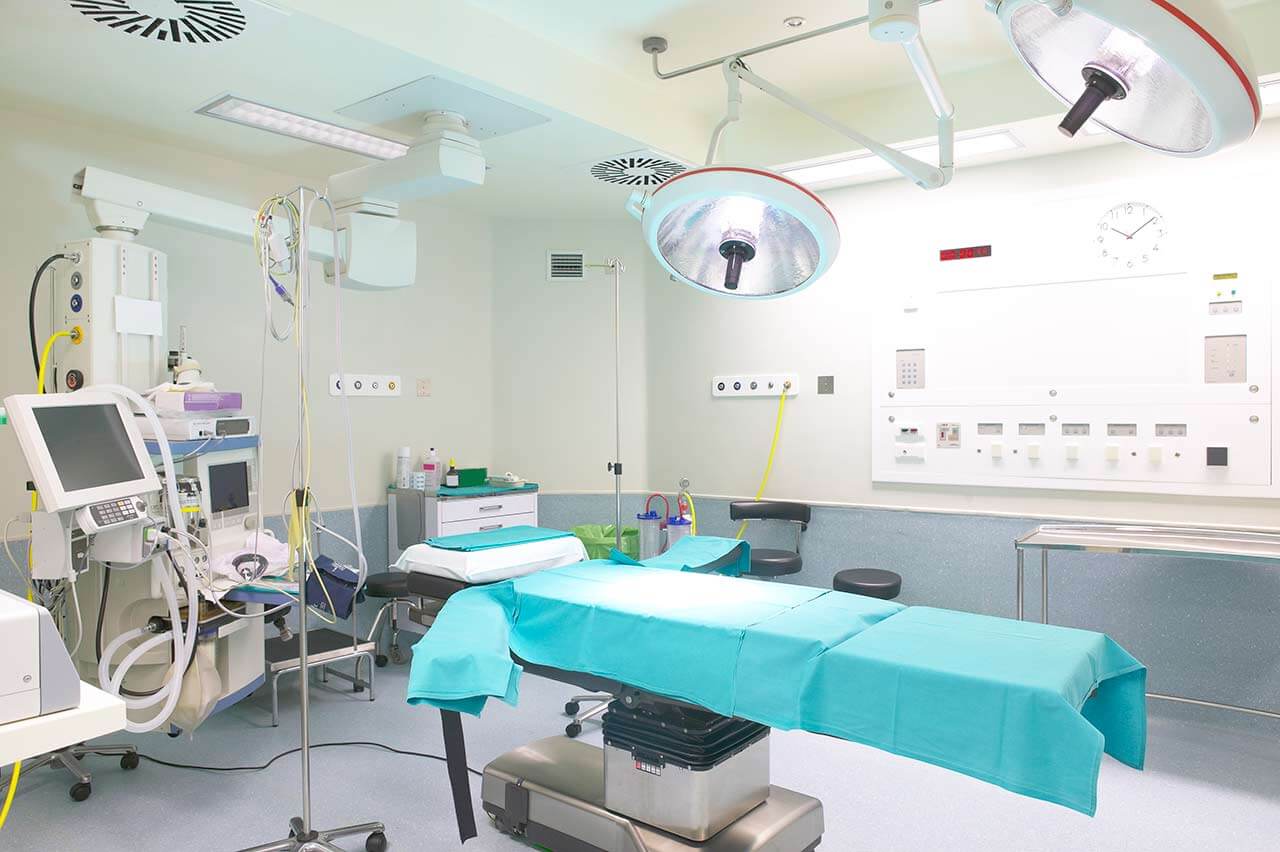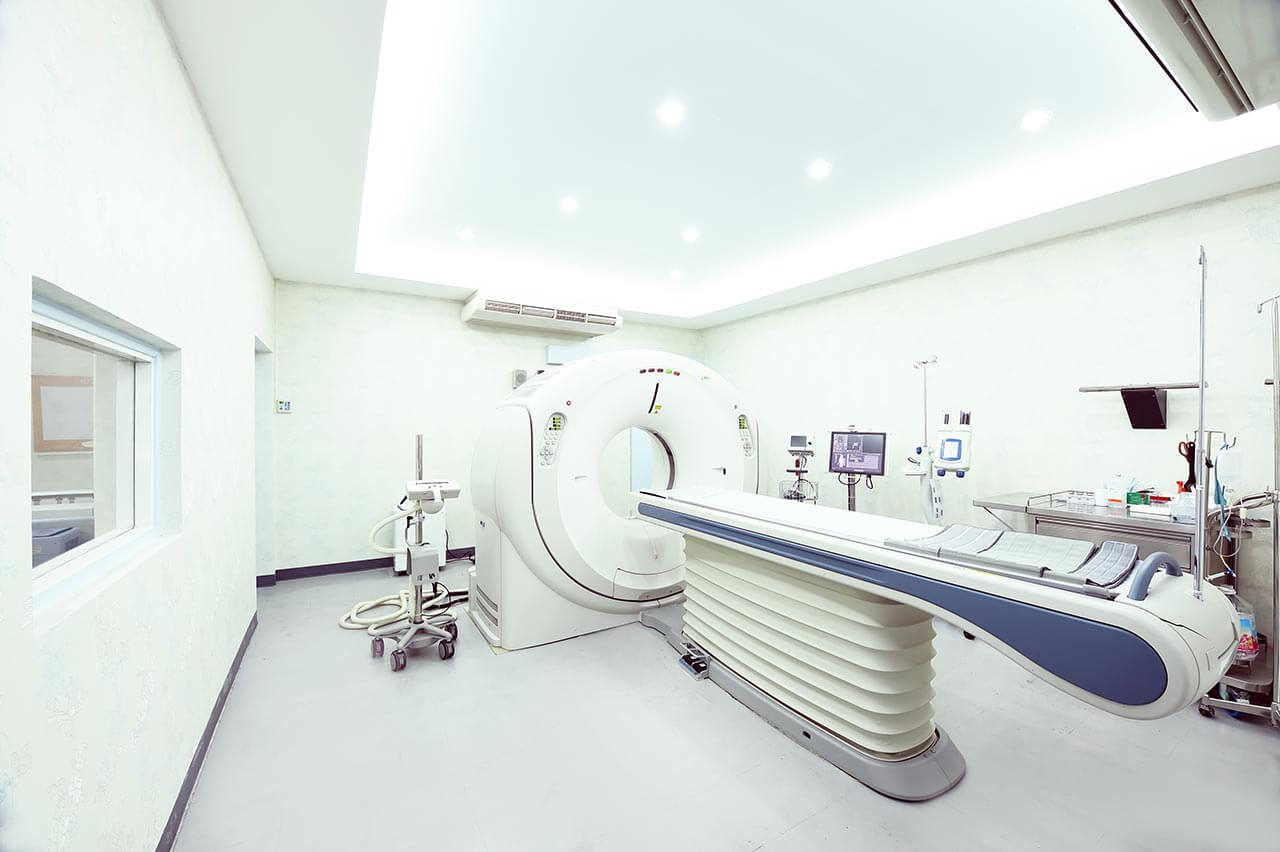
The program includes:
- Initial presentation in the clinic
- clinical history taking
- physical examination
- laboratory tests:
- complete blood count
- biochemical analysis of blood
- Lipid metabolism (HDL/LDL, cholesterol,
triglycerides Lip(a), homocysteine) - blood coagulation analysis (aPTT, PT, INR)
- inflammation indicators (CRP, ESR)
- metabolic status (uric acid, total glucose, HbA1c)
- cardiovascular disease risk markers
- kidney function test (creatinine, urea)
- TSH
- doppler/ duplex receptacles of lower extremities
- angio-MRI from aorta and of lower extremities
- duplex peripheral arteries
- daily wound care
- vasodilator infusion therapy
- symptomatic treatment
- control examinations
- the cost of essential medicines and materials
- nursing services
- full hospital accommodation
- developing of further guidance
Required documents
- Medical records
- Doppler ultrasound/duplex scanning (if available)
- Angiogram (if available)
Service
You may also book:
 BookingHealth Price from:
BookingHealth Price from:
About the department
According to the Focus magazine, the Department of Vascular and Endovascular Surgery at the St. Antonius Hospital Eschweiler ranks among the top German medical facilities in the area of its specialization!
The department offers its patients the full range of high-quality medical services for the diagnostics and treatment of diseases of the arteries, veins and lymphatic vessels. The department specializes in both conservative and surgical treatment. The department has a high-tech hybrid operating room, recognized as one of the best in the region. The operating room is designed for minimally invasive catheter-assisted interventions and classic open vascular surgery. The department's doctors are focused on comprehensive treatment, and therefore the experts in the field of angiology, radiology, nephrology, diabetology and other specialties are often involved in the therapeutic process. The department regularly holds interdisciplinary boards, during which the doctors cooperatively consider especially complex clinical cases and select the most effective treatment. The medical facility is certified in accordance with the standards of the German Society of Vascular Surgery and the German Society for Angiology, which guarantees an impeccable quality of medical care. The department is headed by Prof. Dr. med. Michael Gawenda.
The presence of a progressive hybrid operating room in the department allows the specialists to perform surgical interventions of varying degrees of complexity. Whenever possible, surgeons prefer endovascular interventions, which involve only one or several skin punctures up to 4 mm in size. A surgical intervention is performed under image guidance with the help of a high-tech angiography system with mobile X-ray device, which guarantees the highest precision of each surgical manipulation and maximum safety for the patient. The operating table has a modern 48-inch screen, thanks to which the surgeons can clearly see the operating field in multiple zooming. Nevertheless, in some cases, in order to achieve the best therapeutic result, it is advisable to use a combination of endovascular and open surgical techniques – hybrid surgery. The department's surgeons most often resort to hybrid interventions for stent implantation (for example, for abdominal and thoracic aortic aneurysms), treatment of traumatic aortic injuries and occlusive processes in the arteries.
The department's medical team has rich and successful experience in the treatment of aortic aneurysms. Without timely treatment, the pathology can lead to aortic aneurysm rupture, which is a life-threatening pathological condition. Therefore, it is extremely important to detect the aneurysm at an early stage. The diagnostics of aortic aneurysm is a difficult task, since the pathology is asymptomatic. The disease is often detected accidentally, during the diagnostic examinations for another reason. To make an accurate diagnosis, the doctors use such diagnostic studies as abdominal and chest X-rays, echocardiography, CT angiography and intravascular ultrasound examination. At the early stages of the disease, it is possible to use conservative treatment, which involves blood pressure normalization, cholesterol levels lowering, etc. A surgical intervention is the last-line treatment and is usually indicated with the manifestation of clinical symptoms, rapid growth of the aneurysm, potentially dangerous aneurysms, etc. The surgical treatment consists in the implantation of a vascular prosthesis at the area of the aneurysm. Depending on the particular clinical case, the department's surgeons use both endovascular and open surgical techniques.
The treatment of carotid artery stenosis is also one of the primary focuses of work of the specialists in the medical facility. Stenotic lesions of the carotid artery cause its partial narrowing or complete closure. In most cases, the cause of carotid artery stenosis or occlusion is the deposition of atherosclerotic plaques on the inner walls of the vessel. The plaque growth narrows the artery and slows down blood flow. In addition, blood clots (thrombi) can form on the plaques, which further interfere with normal blood flow. The parts of a thrombus or an atherosclerotic plaque can separate and enter the arteries of the brain with the bloodstream leading to life-threatening ischemic stroke. The department's surgeons successfully perform carotid artery stenting in order to restore its normal patency. The surgical procedure is usually performed under local anesthesia. During the surgery, the doctor places a stent into the narrowed part of the artery. The stent is a metal cellular tube. After stent implantation in the narrowed area of the carotid artery, it opens, pushing apart the narrowed walls of the artery from the inside, and constantly maintains them straightened. This helps restore the internal lumen of the artery and improve blood supply to the brain. The first stage of the operation is angiography. An anesthesiologist then performs local anesthesia, while the surgeon punctures the artery and delivers a stent to the pathological focus with an intravascular catheter. The entire operation takes about an hour. Within 24 hours after stent implantation, the patient should stay in bed. In most cases, the patient is discharged from the hospital the very next day after surgery.
The department's main clinical focuses include:
- Conservative therapy
- Prostaglandin infusion therapy for Raynaud syndrome and occlusive peripheral arterial disease of the lower extremities
- Drug therapy for inflammatory vascular diseases of the rheumatic spectrum (for example, vasculitides)
- Surgical treatment of aortic aneurysms
- Open surgery for aortic stent implantation
- Endovascular surgery for aortic stent implantation (including the implantation of custom-made stents)
- Surgical treatment of carotid artery stenosis
- Open surgery for carotid artery stenting
- Endovascular surgery for carotid artery stenting
- Surgical treatment of circulatory disorders in the lower extremities
- Endovascular surgery (for example, balloon dilatation, stent implantation, atherectomy), including hybrid surgery
- Lower limb bypass grafting
- Surgical treatment of varicose veins and trophic ulcers
- Open surgery
- Endovascular surgery
- Surgical treatment of chronic non-healing wounds (special focus on diabetic foot syndrome treatment)
- Surgical treatment of stenosis and occlusions of the arteries of the kidneys, liver and colon
- Open surgery
- Endovascular surgery
- Surgical procedures for dialysis catheter placement
- Other medical services
Curriculum vitae
Higher Education
- 1982 - 1988 Study of Human Medicine at the Faculty of Medicine, University of Bonn.
Professional Career
- Since April 2017 Chief Physician of the Department of Vascular and Endovascular Surgery at the St. Antonius Hospital Eschweiler.
- Since 1994 Managing Senior Physician and Deputy Head of the Department of Vascular and Endovascular Surgery at the University Hospital Cologne.
- December 1988 - April 1994 Research Assistant, University Hospital Cologne.
Memberships in Professional Societies
- October 2009 and October 2014 Examiner of the Medical Association of North Rhine-Westphalia.
Photo of the doctor: (c) St.-Antonius-Hospital
About hospital
According to the prestigious Focus magazine, the St. Antonius Hospital Eschweiler ranks among the top medical facilities in North Rhine-Westphalia!
The hospital is a modern medical complex with 13 specialized departments. The hospital has more than 165 years of history, so it has long won an excellent reputation not only in Germany, but also in the European medical arena. In addition, the medical facility has the status of the Academic Hospital of the RWTH Aachen University, thanks to which it can offer patients the very latest and unique medical advances. The highly qualified medical staff of the hospital, consisting of more than 1,300 employees, is focused on high-quality medical services with due consideration of the personal needs and wishes of patients
The medical complex has 443 beds. More than 15,000 inpatients undergo diagnostics and treatment on an inpatient basis, while about 25,000 patients receive ambulatory medical care. The specialists of the hospital often provide diagnostic services and treatment to the patients from foreign countries.
The main areas of clinical practice of the medical facility include oncology, hematology, general and abdominal surgery, plastic surgery, hand surgery, vascular surgery, internal medicine, gynecology, urology and radiation oncology. Each area is represented by an experienced team of doctors and specially trained nursing staff, whose task is to provide the accurate diagnostics and the most effective treatment. The work of the medical staff is based on the use of modern technical resources, as well as classic and innovative treatment methods. The doctors from different medical specialties cooperate closely with each other, so the slightest details and characteristics of the patient's body are taken into account when planning and providing treatment. In addition, the medical staff is always open to personal communication with the patients, strives for their moral support on their way to recovery and surrounds them with care.
The outstanding achievements of the hospital and high treatment success rates are confirmed by the quality certificates of the German Cancer Society, the German Cardiac Society, the German Society of Vascular Surgery, the German Society of Hematology and Medical Oncology and the German Trauma Society. In addition, according to the famous Focus magazine, the hospital is recognized as one of the best medical centers in Germany specializing in the treatment of breast cancer, prostate cancer and cardiovascular diseases.
Photo: (с) depositphotos
Accommodation in hospital
Patients rooms
The patients of the St. Antonius Hospital Eschweiler live in cozy and light rooms. All the patient rooms are well equipped to make the patient feel as comfortable as possible throughout the entire period of hospital stay. The patient room includes an automatically adjustable bed, a bedside table, a wardrobe, a TV and a telephone. Each patient room has an ensuite bathroom with shower and toilet. Some patient rooms have specially designed bathrooms for disabled people. The patient rooms also have Wi-Fi.
If desired, the patient with his accompanying person can live in the enhanced comfort room. These patient rooms are additionally equipped with upholstered furniture, a mini fridge and a safe for storing valuables.
Meals and Menus
The patient and his accompanying person are offered tasty and healthy three meals a day: breakfast, lunch and dinner. Breakfast and dinner are served buffet style, while for lunch there is a choice of three set menus. If for some reason you do not eat all the foods, you will be offered an individual menu.
The hospital also has a cozy cafe with a large choice of salads, main courses, pizza, cakes and ice cream. Here you can enjoy aromatic coffee, delicious tea or soft drinks.
Further details
Standard rooms include:
Religion
The religious services are available upon request.
Accompanying person
During the inpatient program, the accompanying person can live with the patient in a patient room or a hotel of his choice. Our managers will help you choose the most suitable option.
Hotel
During the outpatient program, the patient can stay at the hotel of his choice. Our managers will help you choose the most suitable option.




